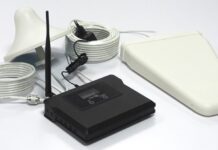Amsterdam court decision blocks Taiwanese device maker from using STMicroelectronics microphone components.
HTC Corp. has hit another speed bump in the rollout of its new flagship smartphone, this time in the form of an Amsterdam court ruling barring STMicroelectronics N.V. from supplying microphone parts for the handset.
The Taiwanese phone maker has been banking on the HTC One to stem a sharp slide in market share and lift earnings, though it has had to delay shipments of the smartphone because of a shortage in camera parts. HTC said Tuesday it is deciding whether it needs to change the microphone components embedded in the One, now available in several markets, but added it expects no “immediate impact” on its handset sales.
The court ruling stemmed from a suit filed by HTC’s Finnish rival Nokia Corp., which claimed that the microphone components sold to HTC were developed specifically for Nokia. Nokia said HTC didn’t have a license or authorization from Nokia to use microphone technologies developed for the Finnish company’s products. Both HTC and Nokia have been touting the ability of their phones’ microphones to handle both loud and quiet sounds without distortion.
Nokia said the court set a penalty of 50,000 euros, effective Monday, for each microphone component that STMicroelectronics sells to other companies outside of its exclusive agreement with Nokia. The injunction will be effective until end-March next year, according to Nokia.
The case was filed in Amsterdam because the Dutch unit of STMicroelectronics was supplying the components.
STMicroelectronics said it would appeal the ruling.
“A decision has been rendered today by the Amsterdam Court, prohibiting ST to sell a specific microphone on the open market. ST intends to appeal this decision. In the meantime, ST is ready to propose alternative solutions.”
The extent of the ruling’s impact on HTC’s business is still unclear, analysts said, but the smartphone maker will have to come up with a quick workaround to prevent sales of its new phone being derailed.
“This adds uncertainty to HTC supply chain for the One, in addition to the previous camera shortage issue,” said Barclays analyst Dale Gai.”But microphones are a commodity component in general, so HTC should be able to find other sources.”
HTC declined to comment specifically on sourcing for the HTC One’s microphones. There are two in each unit.
“We are consulting with [STMicroelectronics] and will decide whether it is necessary to explore alternative solutions in due course,” HTC said in a statement.”In the meanwhile, we do not expect this decision to have any immediate impact on our handset sales.”
After a rollout delay, the HTC One hit U.S. stores Friday and will begin sales in China on Wednesday. It is also available in other markets like the U.K., Germany, Singapore and Taiwan.
HTC’s global market share halved in 2012 to 4.6% from 8.8% a year earlier, according to market-research firm IDC, following marketing missteps and fierce competition from the likes of Samsung Electronics Co.




















